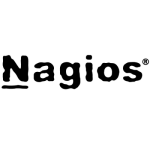What is our primary use case?
We use Spectrum to monitor our infrastructure, servers, network, routers, switches, to make sure that all of our services and infrastructure components are all up and operational all the time. And if they're not, we're responsible for alerting the people who are responsible for the different components and parts. It's a pretty important part of our operational M.O. as we move forward, making sure stuff is up and running.
The performance has been fantastic.
How has it helped my organization?
Since I put this solution in, over the last five years, we have actually reduced the number of alerts that go out and wake people up in the middle of the night by 70%.
What is most valuable?
The stability of the product is key. It never breaks, really. The stability and reliability of the Spectrum product have been top-notch.
The only reason you're not going to know that your stuff is up and running is because you set it up wrong, not because it's not doing its job.
What needs improvement?
Better integration with all the other products in the Agile suite of tools; anything they could do to make that less complex, would be great. They've made it less complex, it's getting better as time goes. It's just such a long road because different products were originally different companies that have been hooked together, acquired, and then assembled as their overall solution. And there's good and bad in that.
The good is they have all these capabilities in a one-stop shop. That's awesome. But, sometimes those were competing products that are now having to work together, and they have to come in and force them together. It adds to the complexity.
If nobody else has said documentation, let's go there. I understand, you can either write about it or you can do it. And most of us would rather they do it, but now that they've done it, those of us that didn't do it, we need to go and find: "Where did they write about this to tell us how to do it?" That's always lacking.
Some of the products are better than others at documentation. Some are them are very good and some of them are not as good. It's a little disheartening when you go in to find whatever it is procedure you need to do and it's just not there. Or it's wrong. That's my favorite.
For how long have I used the solution?
More than five years.
What do I think about the scalability of the solution?
It scales way beyond what we need. I can actually do everything I need to do on one server, even though I have multiple for redundancy. I'm not going to say that I've not had problems with failover and all, because I haven't had to do that; other than me forcing it to do it and switch around. It hasn't actually broken on its own so it hasn't needed to activate its redundancy.
How is customer service and technical support?
The support folks, that's another aspect of it; partnering with CA to make sure that our stuff is up and running. And if there is a problem with it, they have some really decent people that will get on and help you come up with solutions.
Tech support is great. I usually fill out the surveys when they help me. I haven't had many really bad experiences with support. The people I've worked with, if it's a critical issue, they are right on it. If it's more of a generic thing like, "How do I do that?" they get back to you within a reasonable amount of time with the answer.
How was the initial setup?
I did the architecture and implementation, soup to nuts; made the Kool-aid, served the Kool-aid, drank the Kool-aid, every day.
The nature of what we do in this space is complex anyway. There's only so much you can simplify at this level of complexity. And as much as it is complex, they've made it a simple as they can.
Which other solutions did I evaluate?
I think the short list for Spectrum was Solar Winds, Nagios, Spectrum, of course, and BMC.
What other advice do I have?
You look around and see there are a lot of home-grown things, and multiple different solutions from different vendors that just don't work together, or they can't work together for whatever reason.
One thing I like about the one-stop shop with CA is we don't have to have staff to be experts in 84 different things. If I need these two things to work together, if nothing else, I can call support and say, "I tried this and it's not working. Why is this not working?" And they'll get on the phone and WebEx and look and eventually you will get it working.
When it comes to my most important criteria for selecting a vendor, ease of use is always one of the top ones: How many people in wagons and trucks, and servers, how many things do I have to have to run this tool, this product? That is the key factor in my evaluation.
Of course, price, obviously, that goes without saying. The cost of some of these products are a little cost prohibitive, which is unfortunate. We have to find lower cost solutions for some of the things that we have to pull in.
For the most part, CA has capabilities in pretty much everything that you would need. You just have to figure out where are you going to spend the most money for what you have to actually get done. You can do all these things but, which ones do you have to do? And that's hard to choose sometimes because you want to do them all.
Disclosure: I am a real user, and this review is based on my own experience and opinions.
















